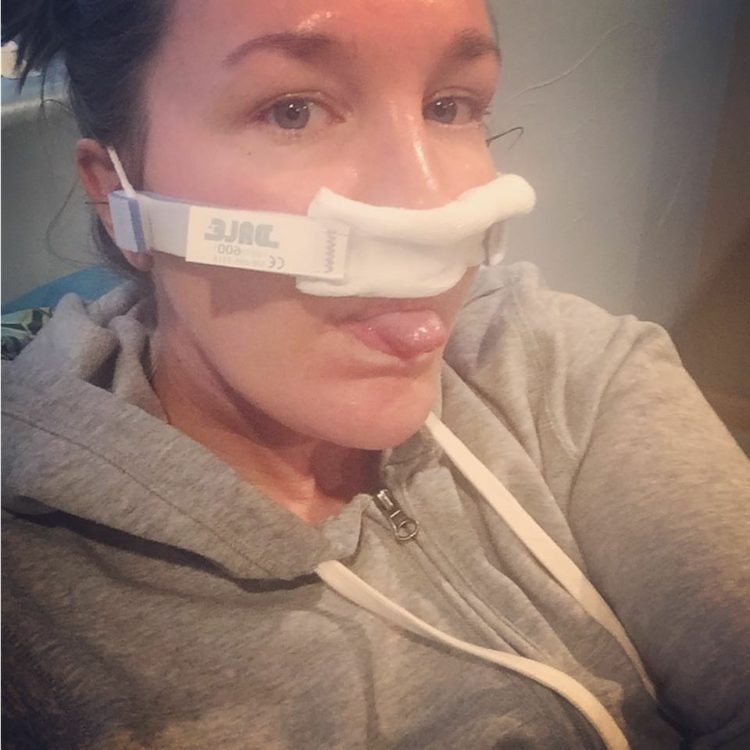When I was diagnosed with thyroid cancer six years ago, I immediately started to do research about my condition. I spent hours upon hours reading blogs and first-hand accounts, following Thyca social media pages, Googling statistics and side effects of treatment, looking for books and resources about my specific types of thyroid cancer and more. Most of my free time became consumed with preparing for anything and everything related to what I was and would be facing.
Unfortunately, no amount of online research can really ever prepare anyone for exactly what they will experience. Every journey is different. Some thyroid cancer patients experience extreme hair loss, some experience drastic changes in their skin, bloating, difficulty losing weight, heat intolerance and so much more. While I didn’t experience all the side effects I had read about, there were so many things that I hadn’t heard about yet ended up facing. While my cancer has remained stable for over a year now, I am currently dealing with the harsh aftermath of my cancer and the treatment I underwent in order to stabilize it.
The first big issue I experienced after my three surgeries and one round of radiation was related to my teeth. The type of radiation many thyroid cancer patients are given causes the salivary glands to dry up, which causes a big change to oral PH balance, among other issues. I had read that the radiation thyroid cancer patients take in the hopes of killing remnants of their cancer has a devastating impact on oral health, but I didn’t realize just how bad it would be. I had only undergone one full round of RAI (radioactive iodine) because my cancer doesn’t respond to it. However, just one round was enough to cause major damage.
After RAI, I started noticing a huge spike in the amount of cavities that began appearing on my teeth and how quickly they progressed. After a while, I felt helpless as it seemed that nothing helped slow the onset. I ended up visiting a dentist and while I’m sure it was unintentional, the dentist made me feel deep shame about what was happening to my teeth. He made me feel as if I had intentionally caused the damage and then neglected it. The dentist fully admitted that he agreed that the change in my oral health was due to my cancer radiation, but he still made me feel like it was my fault. I already felt like getting cancer was my fault, so this was just another blow on top of that.
To make matters worse, the financial estimate the dentist gave me was far more than I could afford. It was extremely overwhelming. I wanted to get a handle on the damage, but I felt like I had little to no options. So, I fixed two of the most visible spots on my very front teeth and didn’t return to the office again. I spent the next few years trying to adjust the way I smiled to ensure that the damage to my teeth wasn’t as noticeable to friends and family and in photos. I felt hopeless, shameful and helpless — a terrible burden to carry around on top of having and trying to manage my incurable cancer.
During this same time period, my right tear duct stopped draining. Most of my cancer was found on the right side of my neck, so I feared that maybe cancer was growing around my eye area and causing the trouble with my duct. I would be talking to someone and all of a sudden, a river of tears would pour down my face. It was very uncomfortable physically and mentally. I started carrying a tissue with me everywhere I went so I would be prepared for the tear river when it would happen. After a few months of this, I visited an eye doctor who confirmed that radiation probably had an effect on my tear duct, causing it to no longer drain my eye properly. I ended up needing surgery to create a new hole that would allow drainage from my eye to my nose again. I spent three months with a miniature tube running from my eye into my nose in an attempt to create the new hole. It was uncomfortable and embarrassing, but at the end of the day the new hole worked. I never would have imagined that one round of radiation would have had any effect on my tear ducts, but similar to salivary glands, they can dry up and change after the radiation.
After I fixed my tear duct, I continued to avoid the dentist. It was a strange feeling because I had never grown up with a fear or avoidance of the dentist and my oral health; I always had healthy teeth as a kid and went to the dentist regularly. After a while of avoidance (more like a few years of avoidance), I started feeling an unbearable pain in one of my right molars. I went to a different dentist this time and found out I needed a root canal. I was devastated. I couldn’t believe I already needed something like a root canal in my early 30s. I sat in the dentist chair during my x-rays and I just cried. I felt so much shame. I knew my avoidance hadn’t helped my situation. My new dentist came in to talk to me after my x-rays were done and he explained that I had damage to nearly every tooth in my mouth. He was so kind as told me that he knew that the radiation causes terrible oral issues for so many cancer patients. He didn’t put any blame on me, which was a huge relief. I continued to cry while he walked me through the course of action we could take to correct the damage and prevent more from piling up. He also gave me a prescription tooth paste that would help stop the damage from progressing. I was so grateful that finally someone had a solution for me and there was help to be found. It still wasn’t an easy day, but I finally had some hope and a plan.
I started using my new toothpaste that night, and over the last few years, it has helped keep further damage at bay. As I get ready to go in for my final phase of my correction plan today, I’m so grateful that there are doctors and dentists out there who understand and who truly want to help. My new dentist has never once made me feel the shame that my first post-cancer dentist made me feel. He and his amazing team created a treatment plan that was affordable for me, and that ensured I was moving forward little by little while reclaiming my oral health.
The aftermath of thyroid cancer can be devastating, and so many don’t understand that even the so-called “good” cancer has life-long effects aside from just the cancer itself. I’m thankful for the health care professionals who get it and give help instead of giving shame. Patients already feel so much shame surrounding their diagnosis alone. But there is help to be found, and I hope no one settles for help that is anything less than supportive. I wouldn’t have been brave enough to address my issues without the professionals who truly wanted to help give me some of my power back. So keep trucking and make sure you build your cancer tribe from the right group of players. <3

Getty image via finwal.

